“Black Moms are Dying.”
These words stood out to me while scrolling on LinkedIn one afternoon; how could they not?
The author of the post was Ada Okafor: the General Counsel and inaugural Chief Diversity Equity and Inclusion Officer of a non-profit health organization. In the organization’s 86-year history, she is the first woman of color to hold these roles.
I soon found myself engrossed in her words. Absorbed in Ada’s personal story of motherhood and the ongoing Black Maternal Health crisis in America, her fears, hopes, and dreams of a more equitable motherhood journey for all moms were inspiring.
Now, mind you, I am not a mother. Nor am I a Black mom. However, I was moved by her words. Countless members across the LinkedIn community shared this sentiment.
Since writing “Black Moms are Dying” during Black Maternal Health Week (April 11-17th), and a second post on “What keeps Black Pregnant Women up at night: The Torie Bowie Tragedy,” Ada’s posts have been viewed over half a million times, have received over 8,600 reactions and over 400 comments, and have been reposted and re-shared over 1,000 times. Hundreds of women have also contacted Ada directly to share their own birthing stories.
“I didn’t expect both posts to go viral and have the type of impact that they did and receive such a widespread response,” Ada admits. “I think this speaks to how much the Black Maternal Health crisis resonates with women everywhere.”
Ada’s call to action for increased awareness, accountability, and responsibility for unbiased neonatal and maternal healthcare is a cause she holds close to her heart.
“I’ve had 3 birthing experiences so far,” Ada shares, “and each time, I was excited but also terrified because I know the tragic statistics – that Black women are 3x to 4x times more likely to die from pregnancy and childbirth complications than White women and Black babies are more than twice as likely to die at birth or in the first year of life than White babies. What’s even more tragic is that more than 80% of pregnancy-related deaths in the US are preventable.”
Ada’s own birthing experiences were thankfully positive ones and she returned home from the hospital alive with healthy babies. Sadly, this is not always the case. There is a tragically high maternal morbidity and mortality rate for Black moms and their babies in the United States. Many people are unaware of these medical disparities.
On April 10th, 2023, Black Maternal Health Week was founded to acknowledge these disparities and increase awareness.
As Ada explains, “Black Maternal Health Week was founded to amplify the voices of Black mothers, address implicit bias and racist ideologies in medical settings, increase Black birth and reproductive justice, enhance community-driven care solutions for Black women, support Black birth workers, and improve Black maternal and neonatal health outcomes.”
While the establishment of Black Maternal Health Week is a positive step, it will take much more than a week of recognition and constructive conversations to elicit change.
An ongoing dialogue with leaders in the Medical world, in addition to more Black moms sharing their birth stories, and allies from all backgrounds and communities speaking up on this important issue is necessary for true equity and unbiased care.
Everyone can play a role in working to prevent pregnancy-related deaths, improve maternal health outcomes for Black women, and deconstruct racism within the birthing space. I hope people who read my post and who also read this interview will find ways to do that.
Ada Okafor
Keep reading below for our exclusive interview with Ada Okafor on everything from the Black Maternal Health crisis in America to her own motherhood journey, how she hopes to create change in her role, best practices to support Black moms at work, and her advice for Black moms navigating their own motherhood journeys.
How will you join the conversation? Let us know in the comments.
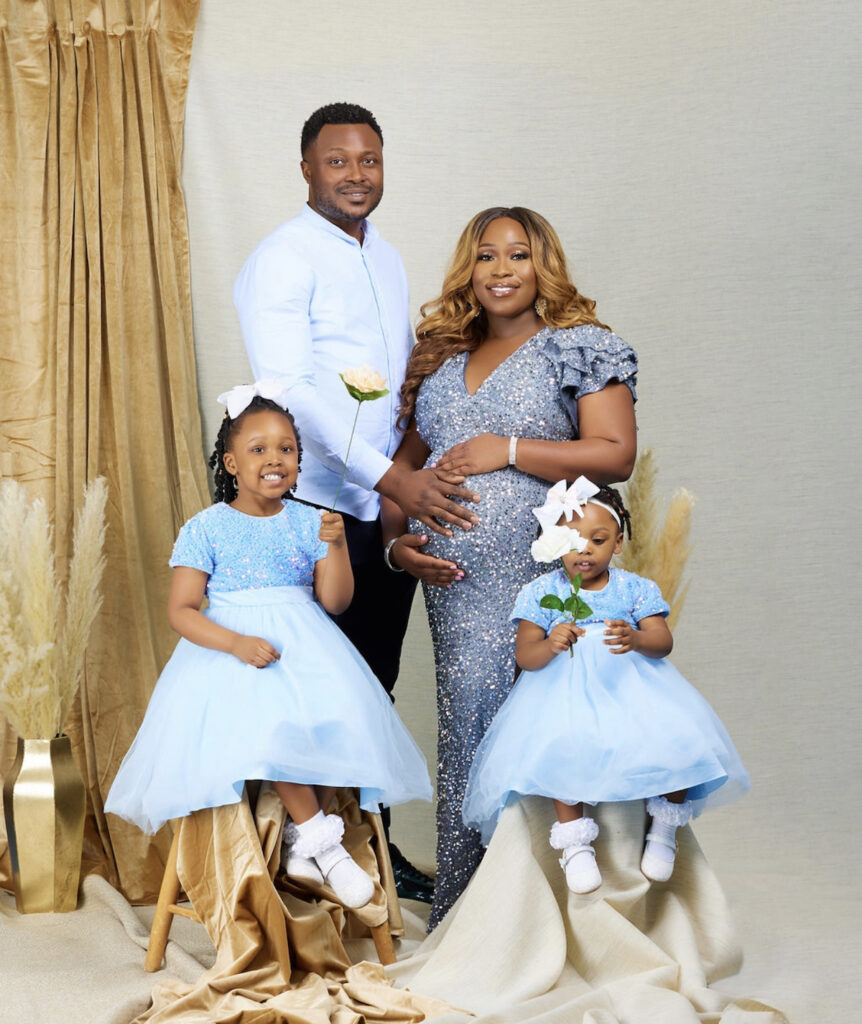
Tell us a bit about you, your upbringing, and your background in law and the medical field.
I was born in Nigeria, raised in the UK, and now call the US home. I completed high school and college in Texas and later moved to Washington, DC, to attend law school, and have lived on the East Coast ever since.
After law school, I worked for different law firms and practiced employee benefits, health, retirement, and executive compensation law.
Two years ago, I joined a non-profit health organization as their General Counsel and inaugural Chief Diversity Equity and Inclusion Officer. I’m the first person of color to hold these positions in the organization’s 86-year history.
As General Counsel, I oversee everything that involves legal, compliance, ethics, corporate governance, and enterprise risk management. As Chief Diversity Equity and Inclusion Officer, I leverage data analytics, educational programming, and workshops to promote diversity within the surgical space, cultivate a culture of belonging, and foster employee well-being, innovation, productivity, and retention.
Being a Black woman, an immigrant, and having grown up on three different continents — in any given space, I’m typically the first or the only one. I worked so hard to assimilate, before understanding that my voice and unique lived experiences are my superpowers.
That’s why I’m so passionate about making sure that people feel valued, seen, and respected, so that they can bring their best selves to work.
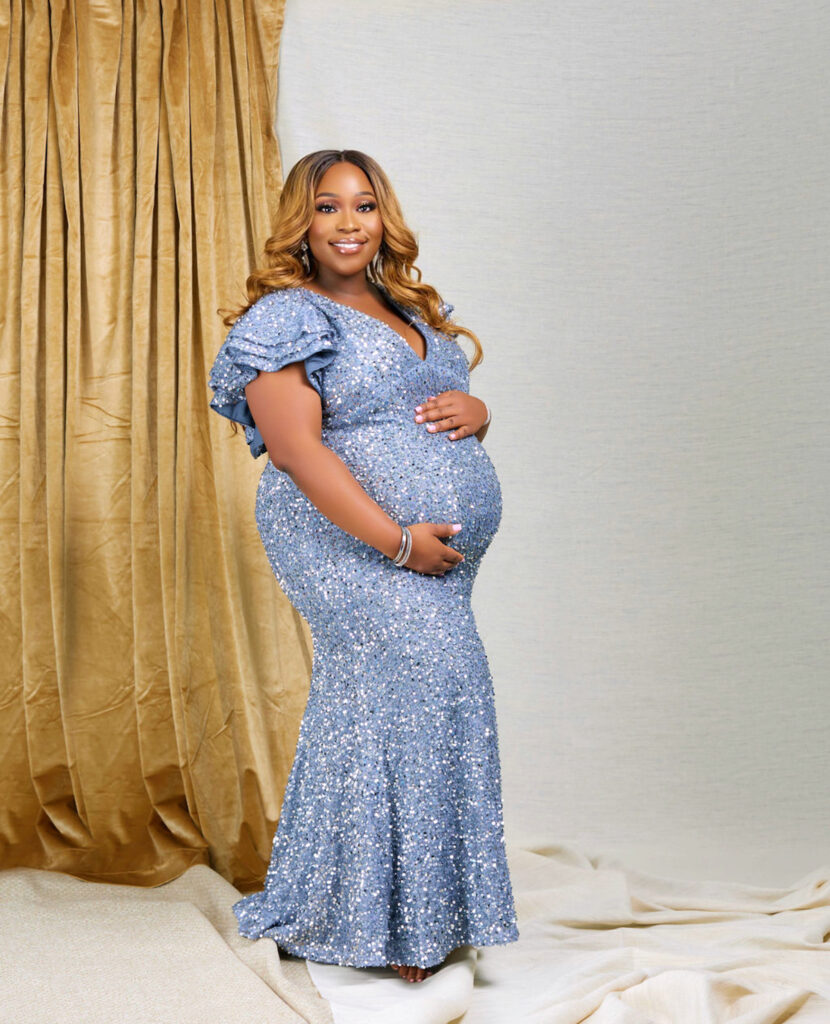
Why is Black Maternal Health and Neonatal Care important to you?
As a Black mom of 3 little Black children – I have a 4-year-old, 2-year-old, and 4-month-old – Black Maternal Health and Neonatal care is really important to me and my children as it directly impacts me and them.
Unfortunately, due to deeply rooted historic and systemic racism, inequality, and discrimination embedded in medicine, particularly in the field of obstetrics and gynecology, Black women often don’t receive the level and quality of maternal health care that non-Black women do. And because racism operates on a spectrum (from blatant and in-your-face racism to subtle and discreet micro-aggressions), racism in medicine can manifest in many different ways.
This can look like Black women having their pain minimized or ignored, delayed or missed diagnosis, being mistreated or neglected by healthcare providers, delayed or withheld treatment, and disparities in access to health education during the one-year postpartum period when Black mothers are at a higher risk for pregnancy-related health complications and death.
Over the years, we’ve seen high-profile cases of fatal or near-fatal Black birthing experiences.
For example, the tennis superstar Serena Williams. Also, Epidemiologist Shalon Irving, who dedicated her life to understanding how structural racism, intersectionality, trauma, and violence influence health disparities over a lifetime, but died from complications of high blood pressure just three weeks after giving birth. And most recently, Torie Bowie, a 32-year-old athlete and Olympic medalist, who tragically died from complications of pregnancy and childbirth. Unfortunately, these aren’t one-off stories, they’re frequent occurrences, which absolutely needs to change.
You may be reading this and thinking well I’m not a Black mom so this isn’t important to me, but this should be important to you even if you don’t identify as a Black mom because this is a public health crisis for everyone in the US. Racism and discrimination in medicine leads to sub-standard care and treatment that has the potential to harm everyone.
As mothers, we’re all part of a larger birthing community and ecosystem so what happens to one mother’s health affects the health of our entire birthing community.
Ada Okafor
It’s so important that we all take this public health crisis seriously and look for ways to eradicate racism, inequality, and discrimination in Black maternal health in order to optimize the health of Black mothers and all mothers.
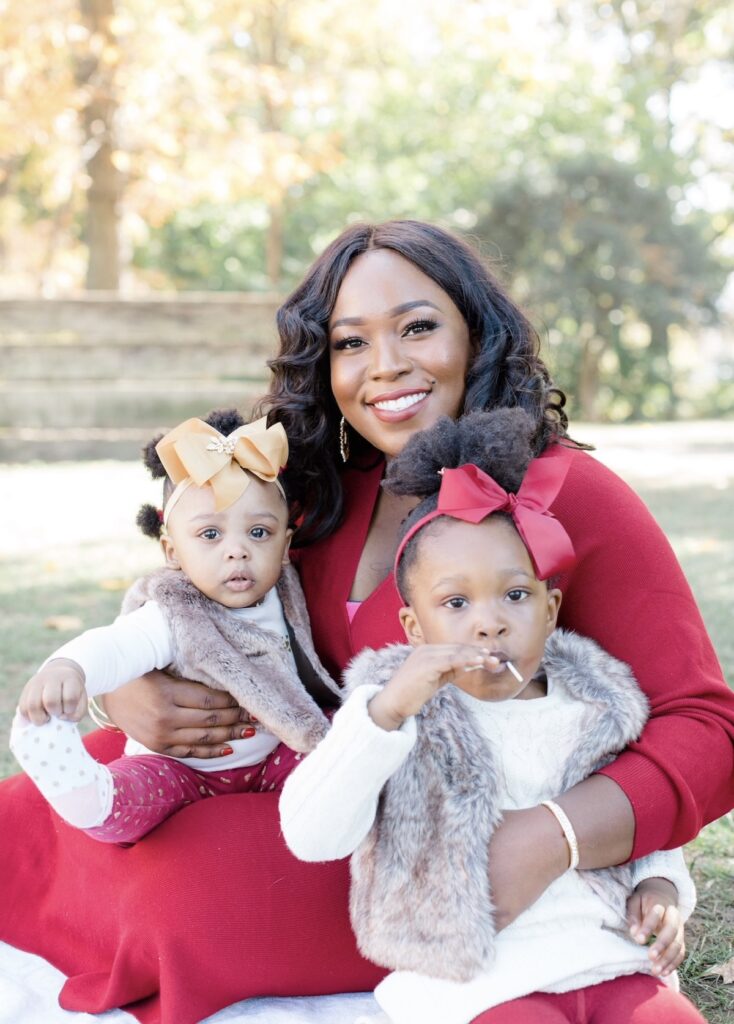
How was your own birthing and post-delivery experience?
I love sharing my birthing and post-delivery experience with other mamas and mamas-to-be.
I’ve been pregnant three times, and with each pregnancy, I was considered high risk due to my age, my weight, and other family-related health risk factors like high blood pressure and diabetes.
Knowing the bleak statistics for Black moms, I did a lot of research on the best places to receive prenatal care and the best places to give birth where I live. After tons of research, talking to lots of moms, and calling around and speaking with different healthcare providers, I decided to go with an OB/GYN and Midwifery Practice for prenatal care for all three of my pregnancies.
I also chose the same hospital for all three of my deliveries, which is one of the best in the country for maternity care because it takes a holistic approach to women’s childbirth and postpartum experiences, it incorporates birthing-friendly practices (i.e., delayed cord clamping, golden hour of uninterrupted skin-to-skin contact, promoting/encouraging breastfeeding), and has fewer emergency C-sections and fewer newborn complications.
My husband was with me for all three deliveries and I made sure he knew my birthing plan and preferences and that he understood he was my advocate if anything went wrong. He was a great support coach throughout my birthing experiences and I felt comfortable because he was in my corner and right there with me.
My birthing teams were all women and women of color and were led by midwives and nurses. They were fantastic and really helped me navigate labor and delivery. I felt safe, seen, heard, and valued, which was really important for me given that Black women have a high birthing mortality rate.
After one of my pregnancies, I developed postpartum preeclampsia.
My blood pressure went through the roof, I had constant headaches, swollen hands and feet, and blurry vision. It was scary. I went to the ER because I didn’t feel comfortable staying at home when my symptoms weren’t getting any better. I left my baby with my mom, and when I got to the ER I was so emotional because all I wanted to do was get home to my baby.
My care team was led by a Black doctor who showed me a lot of compassion and empathy. The nurses were great too and kept checking on me. So I felt taken care of. My care team did bloodwork on me and monitored me for a few hours and then I was discharged to go home. I then followed up with my OB/GYN to make a plan for managing my preeclampsia, which included daily monitoring of my blood pressure. Thankfully my preeclampsia resolved itself after a few weeks.
I know not every Black mother has a safe and positive pregnancy and birthing experience like I did, and that absolutely needs to change. We shouldn’t be scared of dying during or after childbirth just because of our skin color. Our pain and concerns shouldn’t be ignored or minimized.
We deserve culturally competent care to address our unique needs. We deserve the same support and protections as other mothers. We deserve to birth our babies safely and come home alive just as we had planned.
Ada Okofur
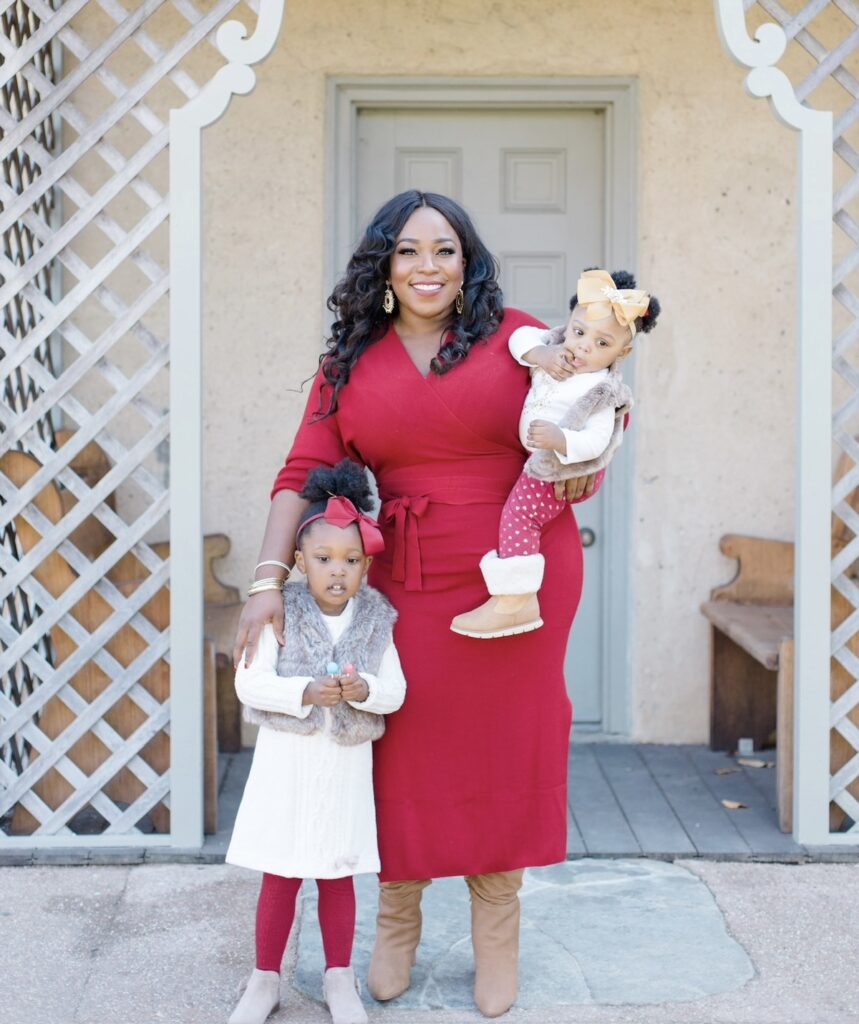
How can employers and co-workers better support Black mothers in the workplace?
As a Black woman and as a DE&I strategist who’s focused on building inclusive workplaces, I think there’s a lot of things that employers and co-workers can do to better support Black mothers in the workplace.
I think the starting point for both employers and co-workers is to acknowledge that for Black mothers this is a life-changing event that can be overshadowed by unique challenges that other mothers don’t face.
For employers, I would encourage them to do an audit of their culture to assess whether it is working mother-friendly. Unfortunately, there’s an overall hostility and resentment towards working mothers. We deal with micro-aggressions, trauma, sexism, misogyny, pay and promotion inequities, inappropriate and off-color comments, lack of childcare support, lack of flexibility in working hours and locations, as well as exclusionary policies and practices that create a toxic culture that frankly no working mother wants to be a part of.
So employers really want to make sure that their workplaces are supportive of working mothers. For instance, companies can asses if their policies, practices, and procedures support their pregnant Black employees before, during, and after childbirth.
To better support Black mothers, employers can ask themselves the following questions:
- Do you offer a ramp down and ramp up program to make the transition to working motherhood less stressful?
- Do you have a generous maternity leave policy?
- Do you offer childcare benefits?
- Do you have allocated office spaces dedicated to nursing mothers such as onsite lactation rooms and refrigerators for breast milk?
- Do you offer flexible work arrangements including fully remote and hybrid options?
- Are you compliant with laws such as The Pregnant Workers Fairness Act and the PUMP for Nursing Mothers Act?
For co-workers, I would also encourage them to do an audit, but of their behavior and attitudes towards to their pregnant Black colleagues.
- Have you checked your bias?
- Have you offered words of encouragement rather than insensitive comments and resentment?
- Have you offered to step up and support your colleague’s projects and clients while they’re out on maternity leave?
- Have you checked in to see how they’re doing?
All these things can go a long way in helping Black Mothers feel supported at work. If you haven’t done any of these things, now is a great time to do just that.
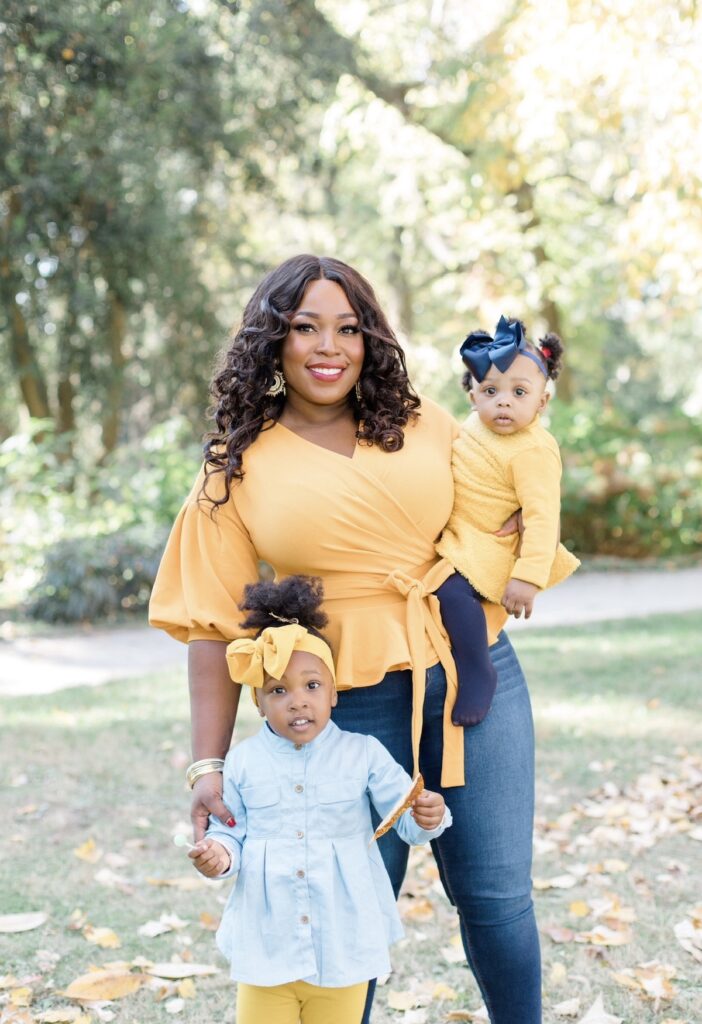
What do you hope to see in the future for a more equitable birthing experience for all mothers and their babies? What are your own plans to help elicit change?
I would love to see all mothers and babies receive the best care possible so that no mother has to fear for her safety, well-being, dignity, or even her life before, during, and after pregnancy.
In my current roles, I work primarily with surgeons; however, I collaborate with other physician-focused organizations including OB/GYNs.
Through reducing attrition and improving retention of diverse medical professionals (doctors, nurses, nurse practitioners, midwives, etc.), as well as educational training, programming, and meaningful conversations, I believe that healthcare providers can become more culturally competent, emotionally intelligent, and increase critical thinking, which in turn will lead to improved patient care, health, and outcomes.
Do you have any advice or words of encouragement for Black moms navigating their own pregnancy journeys?
I think it’s really important to find your voice as a Black mom. But that’s something that definitely takes time to do, especially if you’re a new mom and you have society, social media, family, friends, and even strangers bombarding you with conflicting information on what you should do and what you shouldn’t. You are your best advocate so you should use your voice to speak up for yourself and your baby.
I also think it’s really important as a Black mom to have a good relationship with your healthcare provider (OB/GYN, midwife, or nurse practitioner).
Black moms should ask themselves:
- Do you trust your provider?
- Do you feel comfortable and at ease with them?
- Do you feel heard, listened to, valued, seen, and supported?
If the answer is “no” to any of these crucial questions, I think those are red flags and a sign that you should seek care elsewhere.
It’s also important to do your research and ask lots of questions.
Don’t leave a conversation with your healthcare provider unsure of what they said or unclear on what they recommended or confused about the side effects or risks of a particular medical approach in your care plan.
Review your visit notes and plan after your visit. Most patients retain only part of the information discussed during their visit. Don’t be afraid to email or send a message to your provider via a patient app if you have questions, or follow up on your question at your next visit.
Along those lines, if your healthcare provider has recommended a particular approach, don’t be afraid to seek a second opinion. We often hear about unnecessary medical interventions that go awry so you want to make sure that what’s being recommended is both necessary and the best option for you.
I would also strongly recommend that you do your research and educate yourself on your pregnancy, birthing, and postpartum journey.
Thankfully there are so many articles, books, podcasts, documentaries, films, educational videos on social media, mom groups, websites, and apps out there where you can get reliable information from.
Sign up for birth classes to learn about the basics of labor and delivery and what options are available to you. Seek out lactation consultations to help with breastfeeding or research postpartum doulas to help you transition into motherhood and the first few months of life with baby. Also, be knowledgeable about the warning signs and symptoms of a medical emergency during and after pregnancy.
Create a birth plan or a list of your birth preferences and expectations. Discuss with your provider what options might be best for you. But keep in mind that sometimes it’s necessary to adjust the plan, preferences, and expectations based on what’s safest for you and your baby.
Build and maintain a strong support system during, before, and after pregnancy.
This is an exciting but also physically, mentally, and emotionally draining time in a woman’s life so it’s important to have a village made up of family, friends, therapists, or even faith leaders to lean on for support.
Trust your motherly instinct and do what feels right, comfortable, and safe for you and your baby.
Ada Okafor
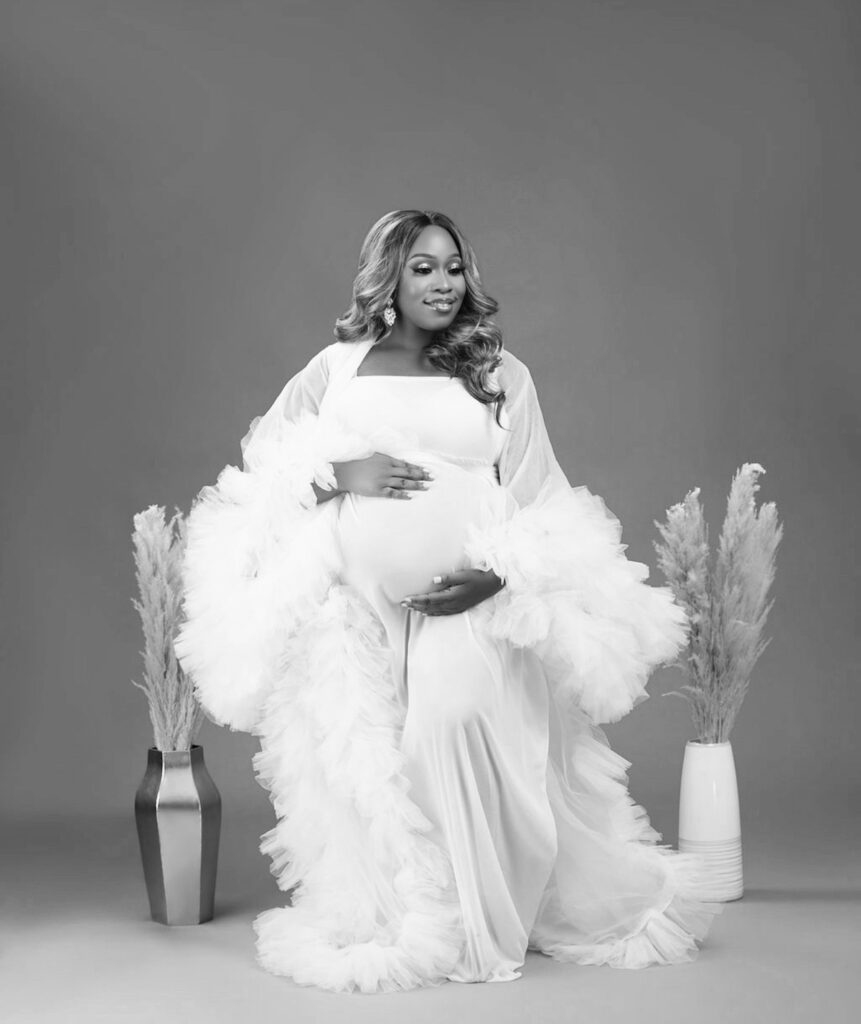
Looking for more ways to raise awareness on the Black Maternal Health crisis and how to advocate for Black mothers?
Check out these resources below:
- Instagram Pages: @blackmamasmatter, @mommination, @4kira4moms, @birthwithoutfear, @everymomcounts, @empoweredbirthproject, @the_naabb, and @birthequity
- Podcasts: Birthright and Natal
- White House Proclamation on Black Maternal Health: Read the Proclamation here.
- Support Black Birth Workers: Go Fun Me Page.





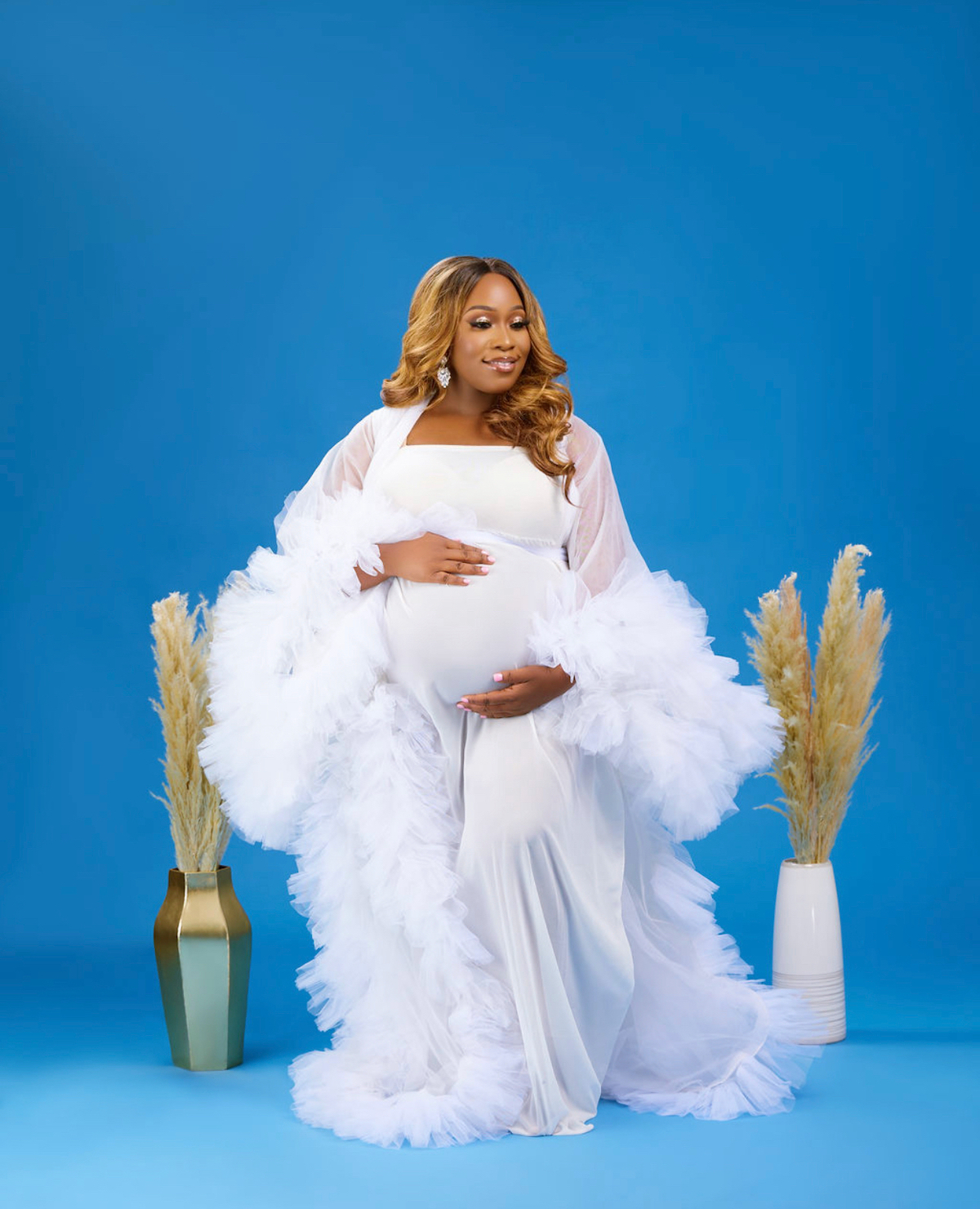
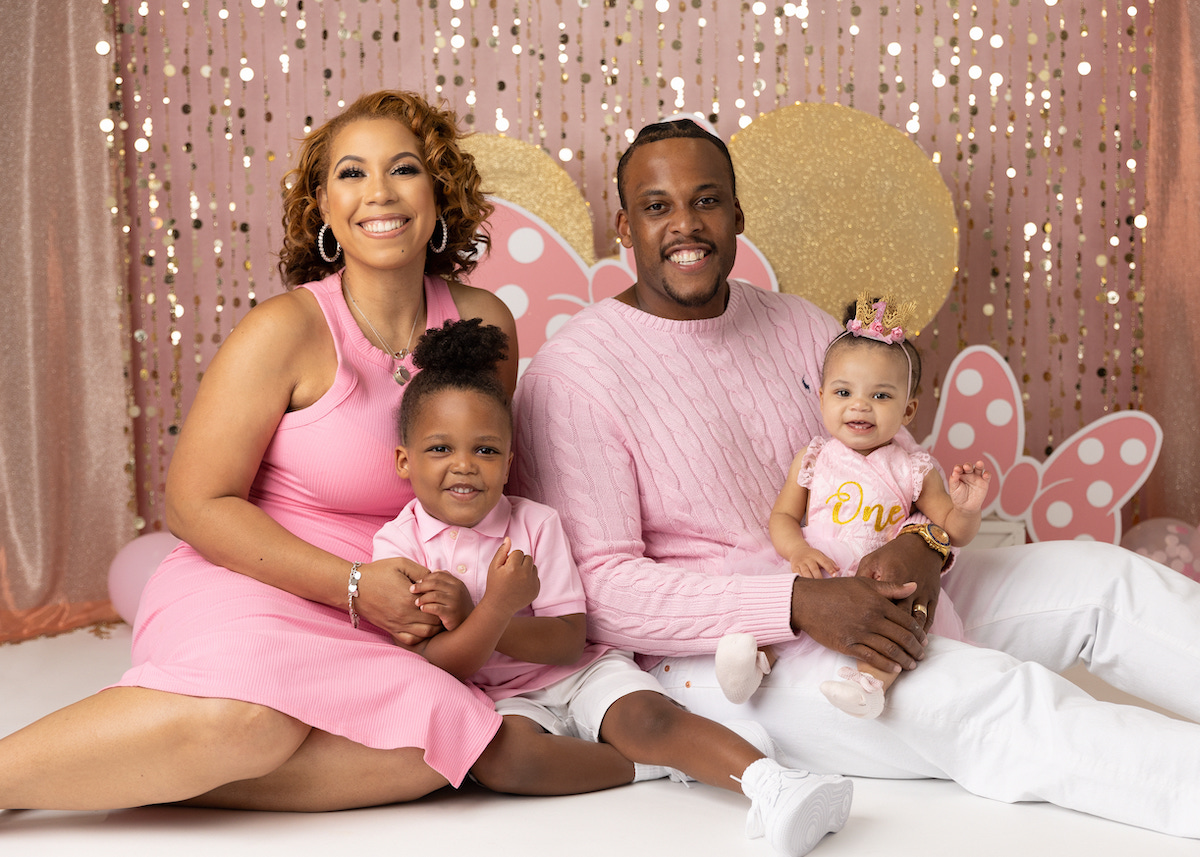
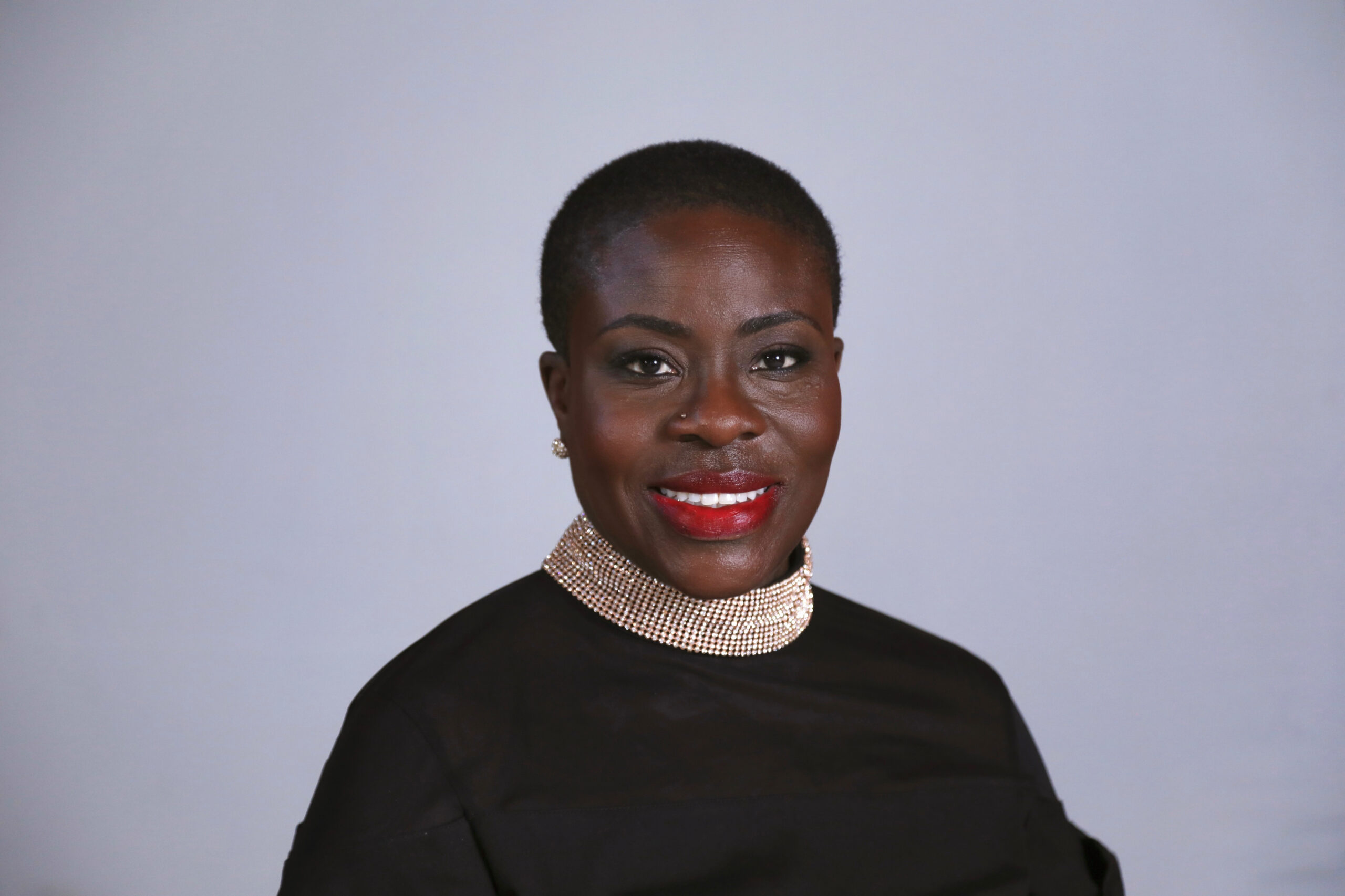



What an incredibly powerful and insightful article! Thank you for using your voice to bring attention to the disparities and challenges faced by black mothers. Your article is a significant contribution to raising awareness and encouraging necessary conversations.
Keep up the amazing work!!
Thank you so much for taking the time to read this article and sharing your thoughts! We appreciate you and your support 🙂
This is totally awesome, You are a shooting Star. I am so proud of you , my Beautiful Ada is Ada. for all you have accomplished, so far . I can’t wait to celebrate your next accomplishment. Keep on soaring, beautiful daughter of the most High. More Blessings.